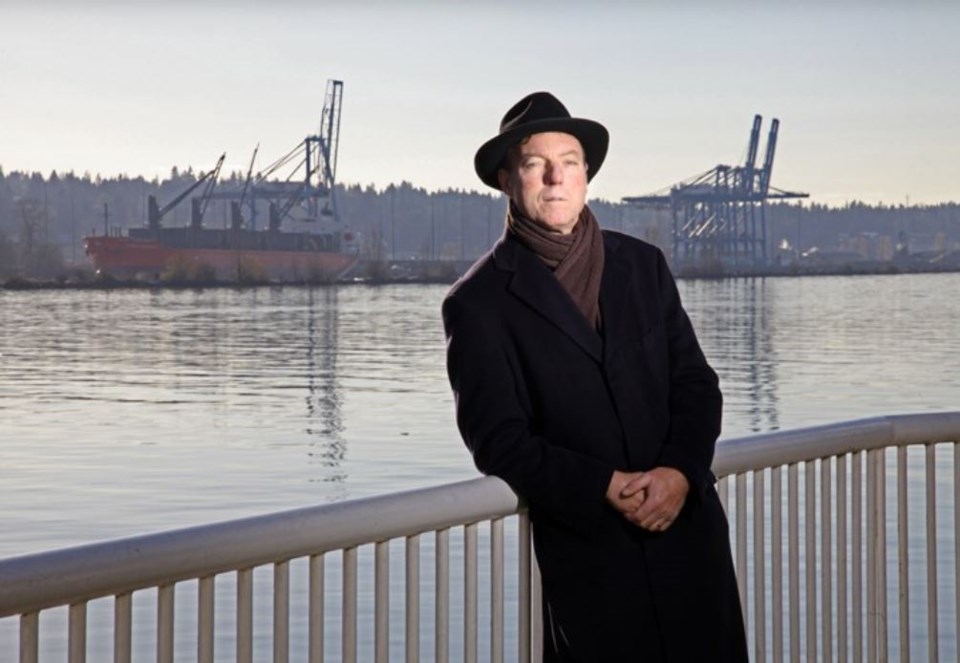A longtime environmentalist is urging New Westminster council to “be courageous” and sign on to the Sue Big Oil class action lawsuit.
Coun. Tasha Henderson is proposing that council ask staff to report back on the opportunity and cost for New Westminster to join the Sue Big Oil class action lawsuit and to present potential cost and staff resource needs as part of the city’s draft 2025 operating budget. Her motion also recommends that the city assess the cost of joining the class action lawsuit through the climate action decision-making framework to determine the appropriate funding source.
Henderson’s motion states that more than 20 local governments in the United States and around the world, including nine local governments in B.C., have filed lawsuits to recover a share of their climate costs (e.g. for loss and damage, adaptation, and climate preparedness) from fossil fuel companies, and Canadian legal experts recommend that Canadian local governments do the same.
The motion is currently in the “notice of motion” stage, which means it will be discussed at next council meeting, which is on Oct. 7.
Longtime New West resident Andrew Murray, a member of the Council of Canadians and part of the Frack Free BC coalition, appeared at council’s Sept. 23 meeting to express support for the motion. He’s urging the City of New Westminster to join the class action lawsuit that will sue the oil industry for damages.
“We would be joining our neighbours, Burnaby and Port Moody, and about half a dozen other cities in this province that have also stepped up and recognized the need for this type of action,” he said.
Murray said analysis shows this issue will play out in a way that’s similar to cases involving the tobacco and pharmaceutical industries, “when they were exposed for selling products that killed people.” He said it is going to be a long, drawn-out process, but signing on to the class action lawsuit is a critical first step to get the process moving.
Although the coalition of cities will be going up against “the most powerful industry on this planet,” Murray believes the cities will have a strong case against the oil industry.
“And the reason I feel that way is because the most damning evidence out there is the science of the oil industries themselves,” he told council Monday night. “Their own scientists, as far back as the 1970s, were telling them, ‘If you put this much carbon into the atmosphere, you will dramatically alter the weather.’ And living here in B.C., the last seven, eight years, we've been on the forefront of that changing weather.”
According to Murray, when cities “take this bold step forward” individual oil companies will have to divulge at their annual general meetings that they are being sued.
“One thing that shareholders don't like is to see a company that they invest in being taken into court, and that creates risk that makes shareholders very nervous,” he said. “Those shareholders, as a ripple effect, will probably demand these companies take dramatic measures to reduce the greenhouse gas emissions as a first step.”
Murray, who has been advocating for environmental initiatives since the mid-1990s, said today’s children need a sustainable future.
“By joining this class action lawsuit, you take that critical first step,” he said. “We have to ask ourselves – we got off lucky this summer – how many towns are we going to sit and watch burn to the ground? How many hundreds of people will lose their homes? … Be courageous: Vote yes for this motion.”
Coun. Ruby Campbell who recently attended a concert by folk singer Billy Bragg, quoted lyrics from his song, King Tide and the Sunny Day Flood: wouldn't it be wonderful if we could save the world and all simply by collecting up tin cans and empty bottles?
“Well, we can't,” she said. “So, I appreciate you coming here today, and I look forward to debating this motion.”
$1 per citizen
Coun. Daniel Fontaine questioned if the class action lawsuit would proceed “without municipal tax dollars being put toward paying the legal fees” if New Westminster does not participate.
“To my knowledge, the lawsuit is looking to attract cities that will add up to 500,000 people in population; that is sort of the benchmark,” Murray replied. “We (New West) have 70,000, Burnaby has 250,000. So, it's not far. Unfortunately, Vancouver took a U-turn on this, which is pretty sad to see. But yeah, there's a threshold that needs to be reached, and I'm very comfortable that it will be reached.”
Murray said the class action lawsuit will still proceed, but “it would be a shame” if New Westminster was not part of that.
“We are talking about $1 per citizen in this city,” he said. “That's the initial cost of becoming part of this class action lawsuit.”
The preamble to Henderson’s motion states that: the City of New Westminster manages, maintains, and prepares municipal infrastructure to protect our residents from future heat waves, wildfires, flooding, and other climate impacts, thereby safeguarding the health and safety of our residents and their property and as a result faces massive costs due to climate change, which are expected to increase. It said it is “unacceptable” that local governments and taxpayers bear the full extent of these climate costs whilst multinational fossil fuel companies take no financial responsibility for the harm caused by their products.





